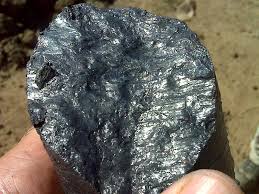Miners around the world are in a race against time to complete new projects in order to ensure supply for the upcoming generation of electric vehicles as China sought to regulate some exports of the crucial battery mineral graphite on Friday.
To ensure the supply of essential minerals and maintain its manufacturing hegemony, China announced that some graphite goods will need export licenses in order to protect national security.
More than 90% of the material used in the battery anodes, which is the negatively charged element of an electric vehicle (EV) battery, is refined by the world’s largest producer and exporter of graphite.
The year 2025 will see the release of the next generation of EVs, and numerous automakers are looking for assistance to fill supply gaps after years of pandemic-related parts shortages underlined the dangers of relying too heavily on one nation.
Carmakers have started directly investing in mining operations to guarantee a future supply of battery inputs in order to stay ahead in a field that is evolving quickly.
However, because mine construction takes five to ten years, miners in other nations believe China will continue to dominate the graphite supply for at least another five years.
Hugues Jacquemin, CEO of Northern Graphite, stated, “What China is saying to the West with this decision is that we are not going to help you make electric cars; you have to find your own way to do that.”
Many industries were caught off guard by China’s action, and some end users were concerned that other restrictions might follow.
According to John DeMaio, president of Graphex’s graphene division, “We see China’s move as a potential catalyst to highlight the urgency of improving domestic graphite supply.”
“We’ve allied ourselves with a number of miners of graphite outside of China. I anticipate that this revelation will hasten their intentions to add capacity in the near future,” DeMaio said.
By the end of 2024, Graphex Group intends to establish a graphite processing facility in Warren, Michigan, with the goal of providing American automakers with at least 10,000 metric tons of the important metal annually, which makes up the bulk of an EV battery.
In addition to rare earths, a collection of 17 elements used in items ranging from lasers and military hardware to magnets found in electric vehicles, wind turbines, and consumer electronics like iPhones, China also dominates other crucial minerals, such as refined forms of cobalt, nickel, and manganese.
“The battery controls a lot of the cost of a car, so if carmakers outside of China are forced to use very expensive materials or can’t access them,…that is going to drive up their prices or force them to buy the batteries from Chinese battery manufacturers,” said Stefan Bernstein, CEO of GreenRoc Mining, the company that is in charge of a Greenland graphite project that is expected to start producing in 2027.
OEMs (Original Equipment Manufacturers), who are concerned about the supply security for batteries and other electronics equipment, have been calling Northern Graphite, according to Jacquemin, to ask what effect China’s most recent decision will have.
He claimed that Northern Graphite may be inspired to raise capital from investors so that production can begin by 2027 as a result of China’s action.
The restrictions on imports, according to Shishir Poddar, Executive Chairman of Tirupati Graphite, would “further boost the development of ex-China graphite activities.” The company recently bought two properties in Mozambique and has mining and processing operations in Madagascar.

















